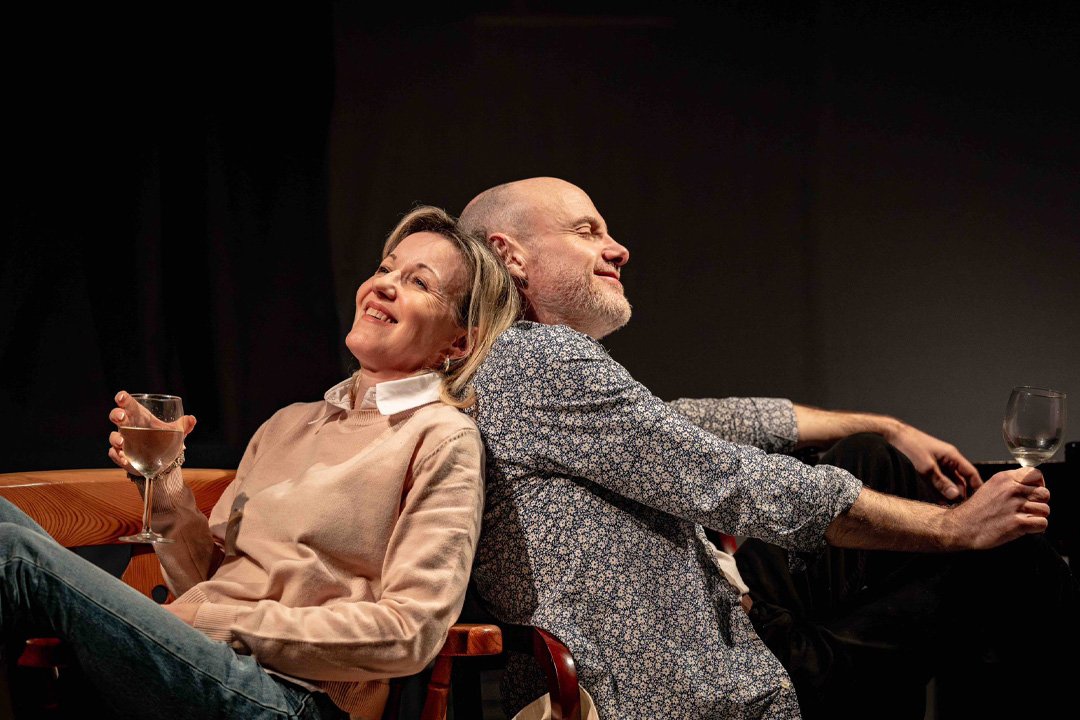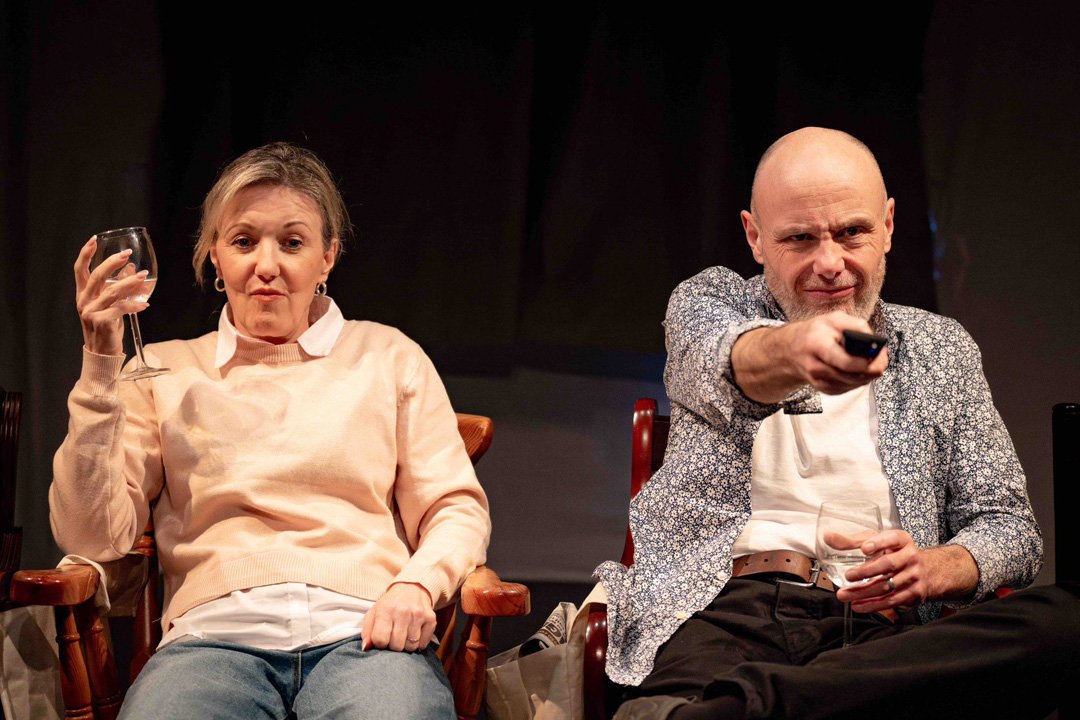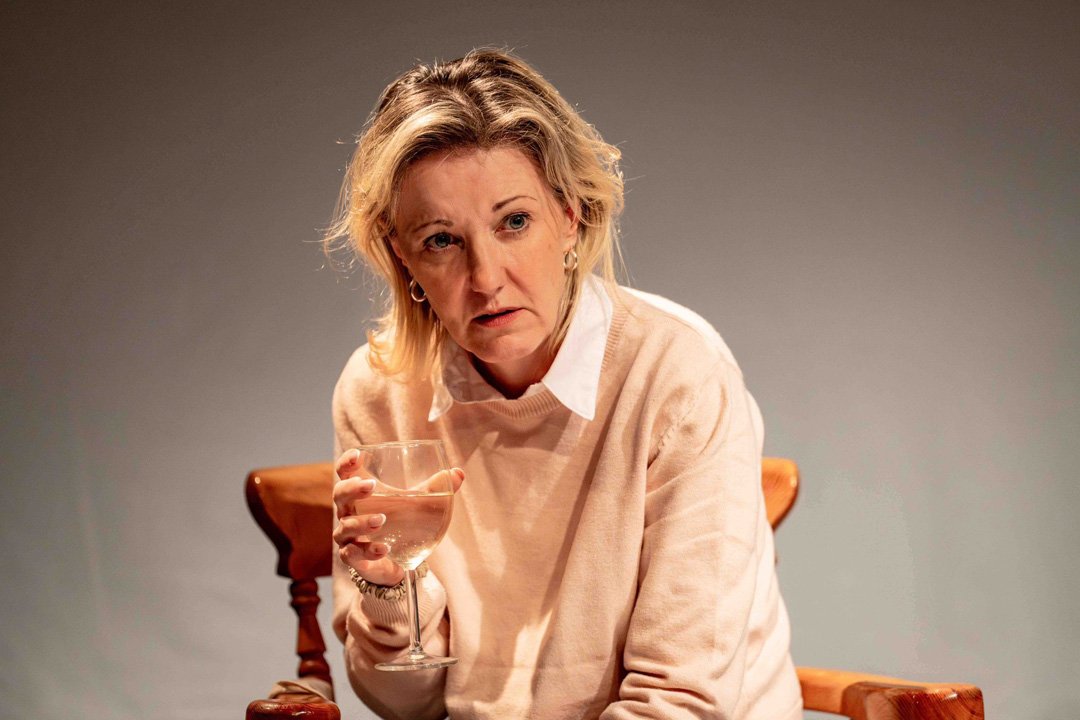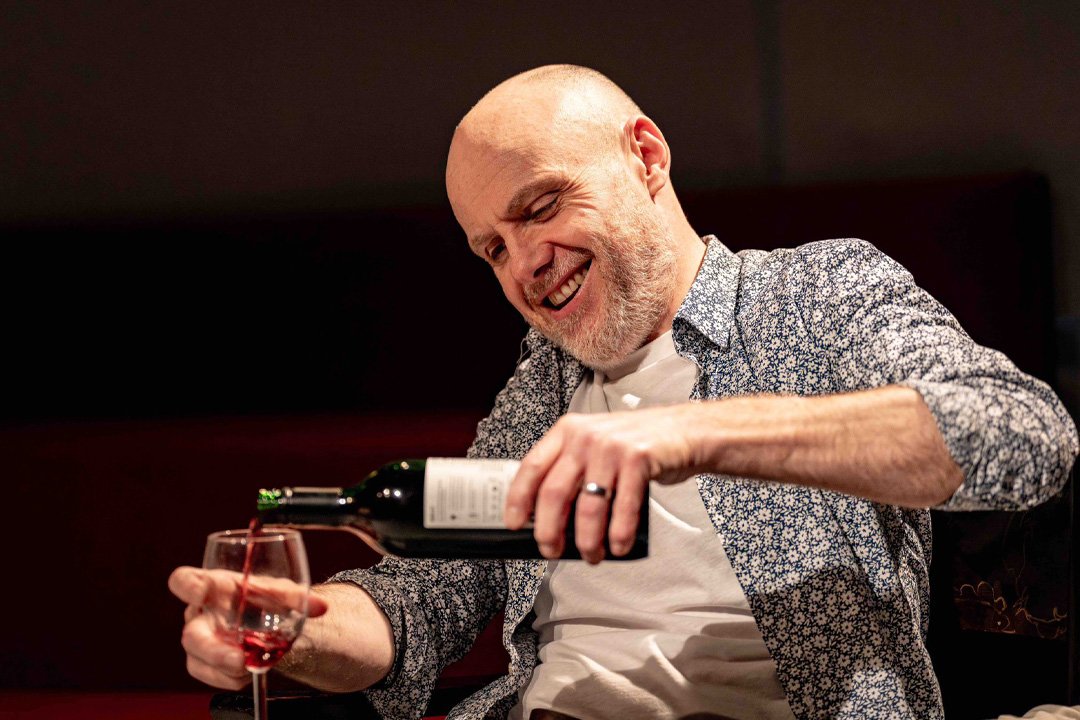JAB
The Finborough Theatre • 20 Feb - 16 Mar
Question: What do you call a ‘pub theatre’ without a pub?. Answer: The Finborough Theatre.
So it is that, whilst the ground floor of the Finborough Arms undergoes major renovations, the theatre above is still very much open for business. (Please note: patrons wanting an alcoholic beverage during the show are currently being encouraged to make full use of the off-licence around the corner). It makes it somewhat ironic therefore that the characters in this intimate two hander are actually seldom seen without a glass of wine in their hands during James McDermott’s new play, JAB, directed by Scott Le Crass.
The excessive drinking is not without reason however as we find Anne (Kacey Ainsworth) and Don (Liam Tobin) at home on the eve that the first lockdown of the COVID pandemic is announced, and as we are introduced to the married couple whose relationship has survived, and possibly even thrived on, 29 years filled with playful, yet somewhat caustic ‘banter’, the cracks in the relationship begin to show as the reality of spending months isolated together hits home, and as the world around them grinds to a halt, the banter slowly turns into an ever increasing cycle of bickering. This extended time together not only puts their relationship under pressure, with each discovering that the other is no longer the person they remember marrying, but as more time passes their tolerance of each other becomes further exasperated by Anne having to deal with the fact that her husband is also an ardent vaccine sceptic, refusing every opportunity he is offered to get the jab whilst she fears her job, as an essential worker for the NHS, might actually bring the virus into their home.
This is a keenly observed and timely play, not only capturing a unique period of very recent history, (maybe a little too recent depending on your own experience during lockdown), but also in it’s observations about the rather more familiar situation of a longterm relationship falling apart, and the strains lockdown put on so many people who found themselves unexpectedly trapped with their partners for an unprecedented amount of time where, as the smallest things become irritants for each of the couple, questions start to be asked. “After 9 months is this what you have turned into, or were you always like this?”, an exasperated Anne asks as she wonders if they have only stayed married for the sake of the children, the house they both love, or if they have just subconsciously surrendered to the mundane routine of their daily lives without even realising.
The play perfectly tracks the couples journey between the years 2020 to 2021, the passing of time periodically being marked by the number of COVID deaths that have occurred. Whilst the scenes are consistently short and the set is surprisingly sparse, neither negatively impacts on the ability for the audience to become very swiftly engaged in the characters and their plight… in fact, both devices are used to skilfully enhance our connection with Anne and Don who, whilst this story might be specifically theirs, the circumstances of their situation certainly doesn’t feel unique, aspects of which many in the audience will no doubt be able to relate to… (even if it is just the nights of exceptionally dodgy drunk dancing and equally dodgy singing along to a favourite eighties bop… I’ve said too much!!) Whilst in the wrong hands this could have easily become a maudlin exercise in presenting a terrible thing happening at the worst possible time, but where JAB really scores is in James McDermott’s acutely tuned ear for dialogue, and his ability to inject moments of humour in order to heighten the sense of impending tragedy.
With both Kacey Ainsworth and Liam Tobin delivering superb performances as an exceptionally convincing and relatable couple throughout, it was Ainsworth’s transformation, from a seemingly content married mother of two to the increasingly desperate working wife trapped in a relationship fast coming off the rails, that really impresses given the way the whole physicality of her performance seems to change in parallel with her characters emotional decline. Not to feel intimidated by the limited size of the space, director Scott Le Crass frequently moves his actors around the stage in choreographed intervals between scenes, and with only four chairs, (and numerous bottles of wine) to dress the set, it’s in those chairs ever changing proximity to each other that we get a subtle, but potently symbolic indication of the state the couples relationship is in at any given moment.
Impressive acting brings to life a well observed script for the world premier of this skillfuly directed new play.
★★★★★




review: Simon J. Webb
photographs: Steve Gregson
